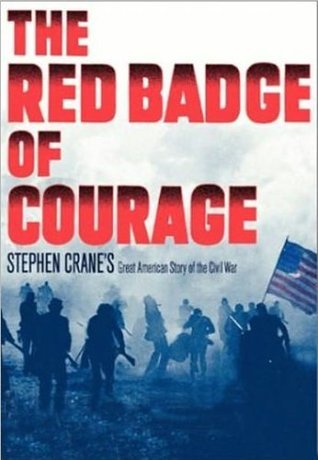What do you think?
Rate this book


240 pages, Kindle Edition
First published January 1, 1895

Intense, volatile, spontaneous, Stephan Crane lived violently, expending himself in a frenzied search for experiences about which to write. Born in Newark NJ in 1871, 14th child of an itinerant Methodist minister. Attended Hudson River Institute, Lafayette College, and one semester by Syracuse Univ. Wrote first draft of “Maggie: A Girl of the Streets” in college. In 1895 published the work he’s famous for (Red Badge …), never having experienced battle. The book made him famous, and established his reputation as a “war correspondent” (??) In 1896 he received an assignment from the Bacheller-Johnson syndicate to cover the impending Spanish American war in Cuba. While waiting for passage in Jacksonville, he met his future common-law wife, the 31-year old Cora Howorth, who was a nightclub and bordello owner in the town, already married twice still married to her second husband. On New Year’s day, 1897, Crane was shipwrecked en route to Cuba, an experience that inspired Crane to write The Open Boat.Writing over. Age 29.
Later assignments took him to Greece (Turkish war) and back to Cuba in April 1898. In January 1899, having returned to England where he and Cora were living, found himself threatened with bankruptcy. He never got out of debt, and plagued by tuberculosis, collapsed and died at Badenweiler Germany in June of 1900.
… there emerged at the end of the century the one creative artist who sounded the possibilities open to his generation, though he fulfilled so few of them himself … in the tradition of Chatterton, Keats, and Beardsley – the fever ridden, rigidly intense type of genius that dies young, unhappy, and the prey of biographers. Everything that he wrote in his twenty-nine years seemed without precedent.Of course the plot lines and the characterization in these stories partake of that unprecedentness. But so also does the narrative style, the materials he selected and arranged to make his strange sentences.